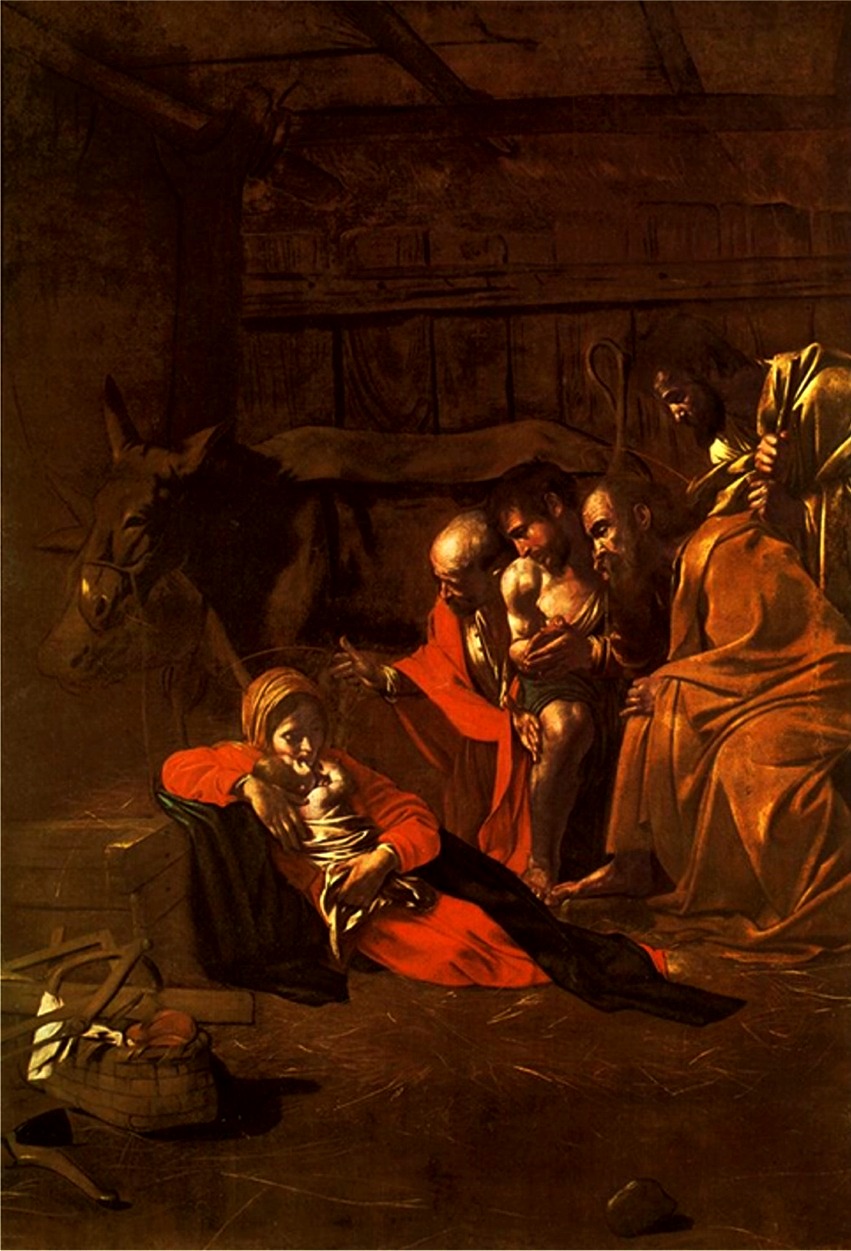December 20, 2023 • Life for Leaders
Scripture — Matthew 6:5-6 (NIV)
And when you pray, do not be like the hypocrites, for they love to pray standing in the synagogues and on the street corners to be seen by others. Truly I tell you, they have received their reward in full. But when you pray, go into your room, close the door and pray to your Father, who is unseen. Then your Father, who sees what is done in secret, will reward you.
Focus
In the end, leadership is about relationships.
Devotion

Adoration of the Shepherds (Caravaggio, 1609)
A chaplain at a university was getting acquainted with some new students. One student said, a bit embarrassed, “You won’t be seeing much of me; you see, I don’t believe in God.” “That’s interesting,” said the chaplain. “And which God is it that you don’t believe in?” Surprised at the chaplain’s question, the student responded, “You know, the God who is up there somewhere in heaven, who is either disinterested or looks down disapprovingly on the world.” The chaplain responded, “Well, I’m not surprised you don’t believe in that God. I don’t believe in that God either.”
That story, as I’ve heard noted biblical scholar Tom Wright tell on several occasions, makes the point that what we think about God matters. Jesus makes clear that the God whom he calls “your Father” is anything but an indifferent or uncaring deity. Further, in today’s text, Jesus tells us that God isn’t merely interested in our religious performance but in a personal, even intimate, relationship. In other words, God is actually interested in us.
A key word in Jesus’ interaction with the religious leaders of his day is the word “hypocrite.” The word the gospel writer uses suggests people merely playing a part in a theatrical production. In other words, they are engaged in a performance that is not who they really are. And Jesus reserves some of his harshest words for religious people of his day who behave in that way.
Why might that be? For one, it misrepresents God as merely interested in external religious performance rather than an internal relational connection between human beings and their Creator. And that’s not only a problem for God but also for human beings.
At the core of humanity’s longings is a yearning for the transcendent. People have expressed that longing differently at different times in human history. The French mathematician Blaise Pascal memorably said there is a “God-shaped vacuum” in each human being that God alone can fill. A millennium earlier, St. Augustine said, “Our heart is restless until it rests in you.” And a millennium before Augustine, the Psalmist wrote, “You give them drink from your river of delights. For with you is the fountain of life” (Psalm 36:8-9 NIV).
As wonderful as it is, the physical world does not ultimately fulfill humanity’s deepest longings. There is a yearning for something more. And that yearning – Pascal’s vacuum and Augustine’s restlessness – alone is filled and satisfied by what the Psalmist calls “the fountain of life.”
This Advent and Christmas season reminds us that, remarkably, the fountain of life has come to us. Rather than waiting for us to make the first move, God took the initiative to become human in Jesus of Nazareth. As Jesus himself said, “Let anyone who is thirsty come to me and drink” (John 7:37 NIV).
For those of us in leadership, this season underscores the importance of our relationships. Those who follow us need to know that we value more than just their performance, more than just their accomplishments. People long for personal connection and belonging.
In organizations of any size, a leader can’t be connected in a personal way with everyone. However, we can model leadership that creates connection and belonging with those around us. And we need to expect our colleagues in leadership to develop and cultivate those kinds of relationships with others. In the end, leadership is about relationships. Otherwise, our organizations become less human and more mechanical.
This Advent and Christmas season is a reminder that the Creator of the Universe became a human being. That is a remarkable affirmation of the importance of the role of human beings and human relationships in stewarding the created world. And that reminds us why good leadership is essential to the well-being of the world in which we live.
Reflect
How are you cultivating a sense of connection and belonging with the teams that you lead?
Act
Take time this week to express your appreciation for the people in your leadership circle.
Prayer
One of my favorite Christmas poems is from British poet Malcolm Guite. Take time to read, reflect on, and pray it this Advent Season:
Descent
They sought to soar into the skies
Those classic gods of high renown
For lofty pride aspires to rise
But you came down.
You dropped down from the mountains sheer
Forsook the eagle for the dove
The other gods demanded fear
But you gave love.
Where chiseled marble seemed to freeze
Their abstract and perfected form
Compassion brought you to your knees
Your blood was warm.
They called for blood in sacrifice
Their victims on an altar bled
When no one else could pay the price
You died instead.
They towered above our mortal plain,
Dismissed this restless flesh with scorn,
Aloof from birth and death and pain,
But you were born.
Born to these burdens, borne by all
Born with us all ‘astride the grave’
Weak, to be with us when we fall,
And strong to save.
Find all Life for Leaders devotions here. Explore what the Bible has to say about work at the High Calling archive, hosted by the unique website of our partners, the Theology of Work Project. Reflection on today’s Life for Leaders theme can be found here: Gone in a Flash.
Subscribe to Life for Leaders
Sign up to receive a Life for Leaders devotional each day in your inbox. It’s free to subscribe and you can unsubscribe at any time.

During his adult life, Uli Chi has lived and worked in the intersection between business, the academy and the church. He has had the privilege of serving as past Board Chair of Regent College in Vancouver, BC, as current Vice Chair of the Board of the Max De Pree Leadership Center at Fuller Seminary, and as current Chair of the Executive Committee of the Center for Integrity in Business at Seattle Pacific University. He has also been involved in all aspects of local church leadership, including as a member of the adult ministries team’s teaching faculty at John Knox Presbyterian Church in Seattle.
Click here to view Uli’s profile.




